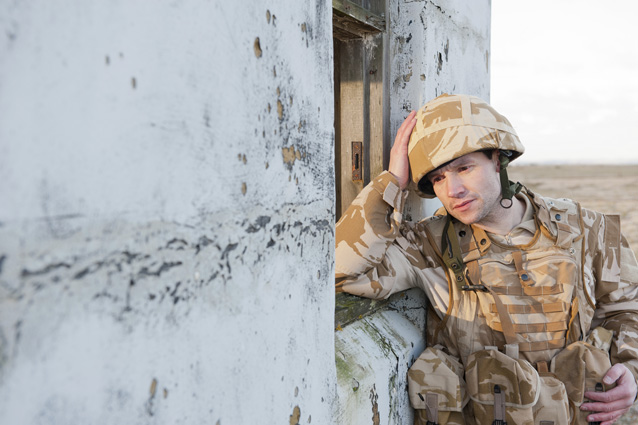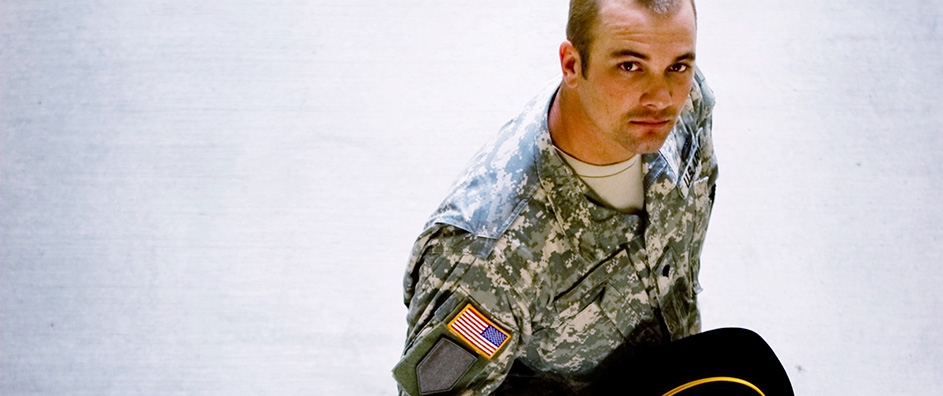The views expressed in our content reflect individual perspectives and do not represent the authoritative views of the Baha'i Faith.
The gift of God to this enlightened age is the knowledge of the oneness of mankind and of the fundamental oneness of religion. War shall cease between nations, and by the will of God the Most Great Peace shall come; the world will be seen as a new world, and all men will live as brothers. – Abdu’l-Baha, Abdu’l-Baha in London, pp. 19-20.
When the United States retrieved its last living prisoner of war recently, we quickly learned that our hyper-politicized society can turn just about anything into a controversy.
You’d think Americans would celebrate. Instead, our politicians issue diatribes and defenses, welcome-home parties get cancelled for security reasons and a vitriolic national debate ensues.
Bowe Bergdahl, a prisoner of the Taliban and the Haqqani network for the past five years, will have to bear the brunt of all this, along with his family and his community.
So let’s consider and reflect on what happened.
Only Bergdahl himself knows all the facts, but an internal military report says he had a habit of going walkabout—wandering off “outside the wire,” which in Army parlance means leaving the base and going AWOL (away without leave). In previous AWOL incidents he had apparently left and come back voluntarily, but this one, unfortunately, didn’t end so well.
The controversy, then, centers around Sergeant Bergdahl’s inner intent. Did he just take a stroll off-base and get inadvertently captured? Or did he voluntarily try to “defect” to the other side? No one can know that except Bergdahl—which makes all of the speculation pretty specious.
But the main question remains: why would anyone take a stroll outside the wire in a war zone?
I have no idea about our unfortunate POW’s inmost motives when he left his base, but I do know from my own experience as a soldier in an American war what can happen when you start really thinking about “the enemy.”
 Imagine it: you’re an idealistic, patriotic young person, in your teens or early twenties, and you join the military. You’re trained to kill for your country and sent off to a foreign land. You have good intentions—you want to help the people you’re supposed to defend. You feel sympathy for their plight as innocent victims of a geopolitical war. You learn the language, or try to. You meet a few of those people, maybe young children or the elderly, and your sympathy naturally increases.
Imagine it: you’re an idealistic, patriotic young person, in your teens or early twenties, and you join the military. You’re trained to kill for your country and sent off to a foreign land. You have good intentions—you want to help the people you’re supposed to defend. You feel sympathy for their plight as innocent victims of a geopolitical war. You learn the language, or try to. You meet a few of those people, maybe young children or the elderly, and your sympathy naturally increases.
Then the bullets begin to fly. You realize, for the first time, that people with guns, usually seen only briefly and distantly, would very much like to take your breath away. They want you gone.
The shock of this stark realization upends everything you know about life. You get mad and you shoot back, and then, in your quiet moments, you struggle to figure that out. You think you know your own motives, which seem honorable—but if you survive you understand, pretty soon, that the other guy’s motives probably seem honorable to him, too.
More combat ensues. People get injured and die. You see your friends shot and killed, blown up by mines and mortars and IEDs. Maybe you kill a few people in anger. But you were just defending yourself, right? Despite that, you remember Thou Shalt Not Kill. This weighs on you, inhabits your dreams, collides head-on with what you thought were your good values and ideals and character.
Then one day, if you survive long enough, it occurs to you that you have more in common with that enemy soldier across the way than you do with any civilian or politician. The regular grunt, the war-savvy infantryman, usually reaches this intuitive conclusion sooner or later. You understand what it takes to fight for your life, so your respect for your counterpart in the opposing army rises, while your respect for those who give the orders and avoid the danger and the real consequences diminishes.
Soon, after recognition and respect, comes curiosity. You wonder what it would be like to meet the enemy soldier, compare experiences, find out if he has a girlfriend or a family or a set of normal human hopes like you do. You’re intensely curious about what makes your estranged brother in arms tick. This is his country, you think—wouldn’t I defend mine fiercely if someone invaded? You learn that this artificial idea of nationality—I’m American, you’re Vietnamese or Iraqi or Afghan—makes no real day-to-day sense. Sure, you love your country—but the soldier trying to kill you loves his, too. Where does that get us, except our own six-foot-deep piece of dirt? We’re all people, you realize. We all bleed. We all live on one round ball in space. That guy shooting at me, you finally figure out, is me.
So you decide, exactly as I saw a few PTSD-afflicted young men in Vietnam decide, to declare your own little personal truce, and go get your questions answered by conducting some one-on-one shuttle diplomacy, and maybe meet your brother and find some peace.
One friend of mine who tried it never returned—I have no idea what happened to him.
But I knew a handful of American soldiers who had stories to tell from their encounters with “the enemy.” One GI told me he had come up on six Vietnamese soldiers around a campfire and, after a few tense moments, shared a meal. When he told me I could still smell the fish sauce on him. Another GI in my platoon said he almost got shot, then shot the guy thought he wanted to befriend. “Killed him,” he said, “had to.”
When I seemed skeptical, he told me he could prove it, and showed me a little notebook with Vietnamese handwriting in it, and a crinkled black-and-white photo of a smiling young girl holding a baby.
You May Also Like
Comments

















Bowe Bergdahl, a prisoner of the Taliban and the Haqqani network for the past five years, will have to bear the brunt of all this, along with his family and his community.
So let’s consider and reflect on what happened." Yes, let's ...